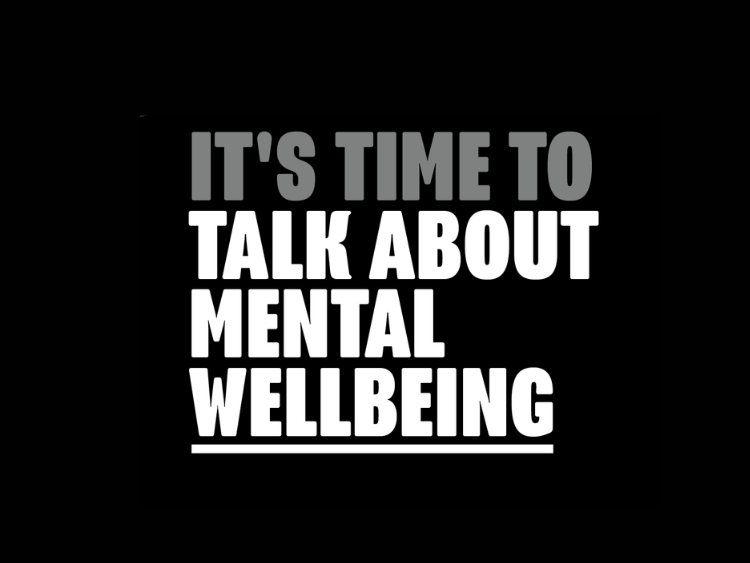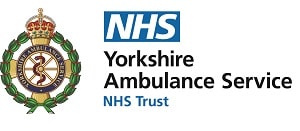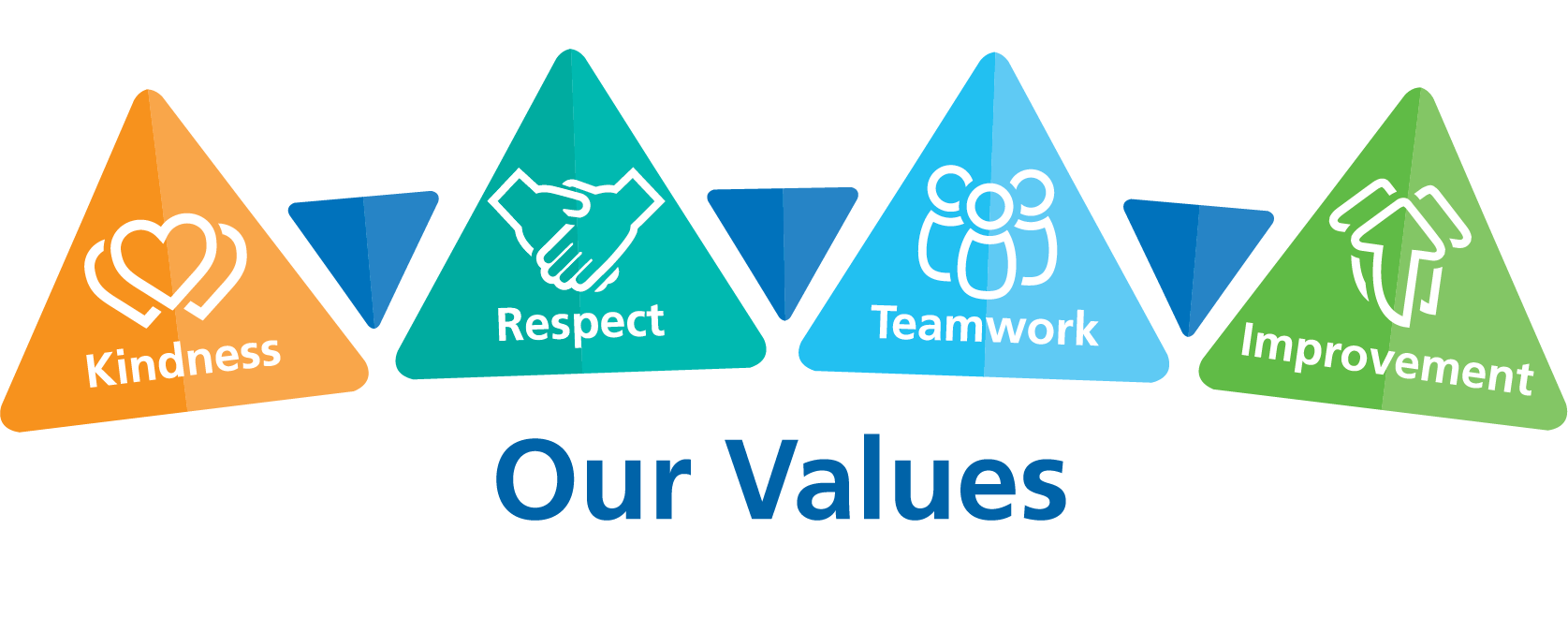Check-In mental health and suicide prevention campaign
04 February 2021

Our Check-In mental health and suicide prevention campaign was launched on Time to Talk Day (4 February 2021).
We have joined more than 160 organisations across the region to take part in the West Yorkshire Health and Care Partnership-led campaign which aims to promote a wellbeing culture by normalising the conversation around mental health and suicide.
In England there were 5,316 confirmed deaths to suicide in 2019, this is an average of 102 people dying every week. Suicide is the biggest killer of people under the age of 35 and the biggest killer of men under the age of 50.
COVID-19 has added unprecedented pressures to everyone’s lives and whether colleagues and volunteers have previously experienced mental health concerns or not, we’re taking the step now to invite everyone to initiate wellbeing conversations.
Our aim is to reduce the stigma associated with mental health and to eliminate judgement. We want suicide prevention and mental health to become part of everyday workplace conversations.
Check-in not only aims to bring staff together to improve mental health and tackle suicide but also provides training and support at staffcheck-in.co.uk. Through this website, colleagues, partners and volunteers have access to tools and resources aimed at supporting them with their own mental wellbeing or enabling them to support a colleague with theirs.
We’re also asking everyone in our organisation to take the Zero Suicide Alliance 20-minute training which provides a better understanding of the signs to look out for and the skills we all need to approach someone who is struggling.
Staff share their mental health stories
It is important that people living with mental health problems know that they are not alone and by encouraging open conversations, we are helping to break down stereotypes. We know that opening up about how we are feeling is the first step to feeling better.
To help reduce the stigma associated with mental health problems, staff are raising awareness of the importance of reaching out for help by sharing their own personal experiences.
Paramedic
"The past 12 months for me have been a time of change, a time to look inside me, so that I can find myself again. Would I wish to do it again, that’s one I can easily answer, 'oh hell no'.
I’ve looked into that deep dark pit, and I’ve told myself I would be better off if death came for me. I even thought about how I would help him to take me and what a joy it would be to go, so as not to feel anything anymore.
The road down was not quick, but it did look that way at first. But looking back it was so slow that I did not even see what was happening to me. As for the road back, it has been even longer, some of the time I felt as if I was all alone with nowhere to go, and no one to help.
At last, I was able to see the hands which were helping to hold me up, and keeping me from falling all the way down, and show me that with help I could come back to being me. This is something I would not wish on anyone, the fear of not being able to close my eyes for what I may see, all the faces lost and past, all the ones I feel I let down.
It’s also something which we do not talk about, we all just seem to hide behind the uniform, as if by wearing it we cannot be touched by anything we see. At times some may see us as superheroes, at times you may feel like one yourself. But we are not, we’re just the same as all the other people out there, we just do our job, but one which to us is a calling, and one where we always put others before ourselves.
We still feel the same pain as anyone, and we still hurt when death wins. Just like everyone we can only take so much, we all have an account in which to put our feelings to keep them safe, but this account will only hold so much and when it’s full, we must find somewhere to put the overflow, or we will crack. That could be by just talking to someone who can understand and can see what we do, or by writing it down.
For some reason we very rarely do ask for help, that is seen by some as a sign of weakness, but, you see, by asking for help we are showing how strong we are. It shows we know the account is getting full, and we need to take some pressure off. We should do more to help ourselves so that we can go on helping others. We do not choose the people we help, we just take each job as it comes, and do what we can to help and save lives.
But, and this is a big BUT, just as we can only save a life by getting to the job safely, we can only keep saving lives by making sure that we also look after ourselves and each other’s well-being. That could be just by simply talking about how you are feeling, without worrying what other people think."
Paramedic
"I have lived with depression for most of my adult life and there have been many times when I have thought about suicide.
The depression came on when I was in my teens and I was told that my low moods were just part of being a teen. It’s difficult to explain the complete darkness you feel and also the pain. The pain is not a physical pain, but you just feel a kind of all over internal pain that grates at you and nothing seems to stop it. It made me wish that I would fall asleep and never wake up, and then I would be at peace. I genuinely believed that I would not survive my twenties.
However, fate intervened, and I met my partner and we had a family. This changed my focus but I was still having periods of severe depression. This continued after I joined the ambulance service. I never actually went to my GP or asked for any help, probably because I didn’t want to share my very private thoughts and because of the stigma. On occasion, during intense periods of depression I would plan my suicide. I had several different plans at one stage. People often say that a person who has completed suicide must have been selfish, but at the time you have these thoughts you are in such despair that you are not thinking logically.
Why didn’t I go ahead? Strangely enough, indirectly, the ambulance service saved me. I had a period of “bad” jobs where I saw a lot of younger patients die, and I saw the devastation and guilt that was left behind from suicide. I suddenly felt that I couldn’t go on feeling the way I was, and that this was a waste of my life. Instead of thinking about suicide as the solution, I went home and spoke to my partner and was honest about how I felt. I went on to have counselling, but the best thing that worked for me was talking to other people. Finding out that I wasn’t the only person to have felt how I had been feeling was amazing.
How am I now? I feel at peace. I feel stronger than I have ever felt. I have a group of new friends who understand me because they have similar experiences, and I know that I can always ring someone if I needed to, which is a great comfort.
Has the depression gone? No, it’s still there in the background, but I have control now. When I was younger, most of my days seemed dark, but now most of my days seem bright and with colour.
My advice to anyone who is silently trying to fight depression or suicidal thoughts by themselves is to reach out and talk to someone. Once you have been honest about how you feel, it takes a weight off you. Also, you will be surprised at how many people will understand and have similar feelings to yourself. Don’t be afraid of counselling and don’t give up if the first one is not right for you. Talking to a ‘neutral’ person really helps and they can point out things that you never realised. The more you learn about yourself and understand what triggers these thoughts, the more you can keep them under control.
Finally, I know it’s a cliché, but life is worth living, and however hard it may be at the moment, things do and will get better."
Operational manager
"Since the first lockdown in March, dealing with a lot at work due to COVID has been very difficult. The thought of suicide has not passed my mind but being severely down and having breakdowns at work has caused me to have low mood swings. I find it very easy to put a front on and keep everyone going at work but I very rarely let anyone know how I feel inside. When I get home, that’s when I let it all out to my partner and unload how I truly feel; it’s important for everyone to have that support at home and have a person you can trust to offload to. I also have a close relationship with my line manager who I can go to for help and advice.
Since last March we have been in a horrendous situation which we have had to adapt to. For me as a member of management it has taken its toll many times over the past year. I have had to take on so many changes with how we work, some of these were good and others weren’t. The biggest challenge I faced was dealing with staff who were scared and completely out of their comfort zone when out dealing with COVID-19 patients. Relaying information back to senior management and then updating staff on developments was incredibly difficult. With everything going on this put great pressure on myself which I felt got worse and worse. I used to go home and just simply stare at four walls for peace and quiet to clear my head. I would wake up most days and think about not coming into work or think about if I wasn’t here who would care and who would actually miss me. It truly puts you in a dark place which I didn’t want to be in.
A turning point for me was when things got worse and my attitude affected my work life and communication between staff, resulting in informal counselling because I simply turned into a horrible person who just wasn’t me. I then had one-to-ones and took annual leave to have a break from work, which was needed and helped me to recover.
I think in these desperate, strange and unprecedented times people overreact to situations because of fear of the unknown.
Anyone who thinks they don’t want to be here must talk; we all have a person that we can say anything to and not get judged. I’m a very open and honest person and have had many difficult conversations with staff who have wanted to off load and speak to me about things they have found tough, both at work and home. As a service, it’s crucial that we have people who are open and compassionate to help those when they need it."
Support services employee
"I had been a tower of strength for everyone else during a particularly difficult period for our family but I now realise that I kept nothing for myself. It was a gradual process but eventually I shut myself away from my usual confidantes and focused all my energies on my loved ones who needed me. I couldn’t talk about what was happening without crying, so it was just easier not to talk about it at all.
It was only when their lives started to adjust to a new kind of normality that it hit me. When I look back at how I felt when my mental health was at rock bottom, I can’t believe how much I had deteriorated without even realising it.
My symptoms were surprisingly physical… from panic attacks to paralysis which was a terrifying experience. I dreaded going to bed. I was exhausted but never felt like I slept, I either seemed to enter a frustrating semi-conscious phase where my mind was still racing or I was having awful nightmares.
In the day, I couldn’t concentrate and it was becoming more difficult to keep up the façade. I was breaking down in tears, on edge and irritable.
My husband persuaded me to request counselling through work which I did. While it didn’t feel like it was going to be the solution, it did help me to understand why I was feeling like I was. It came as a shock when my counsellor said she suspected that I was suffering from PTSD. It made sense when she explained her rationale but it made me feel like a fraud and weak. After all, it was something experienced by soldiers following military trauma or after a horrific attack, not after something that I had been through. She told me I needed more specific treatment which unfortunately she couldn’t offer.
The thought of going through everything again with another counsellor filled me with dread so I opted for a course of acupuncture. It helped initially but the benefits became less noticeable so I stopped and again sank back into the dark hole that I couldn’t find the strength to climb out of.
It was only after a chance conversation with a colleague at work that I offloaded my thoughts and feelings. Having struggled her with mental health in the past, she instantly recognised the warning signs and encouraged me to contact my GP.
Within two weeks I had been assessed by a counselling service and offered EMDR (Eye Movement Desensitisation and Reprocessing) therapy. My therapist took me back to my traumatic experiences in brief doses while she directed my eye movements with her finger. It was intense, upsetting and exhausting but as the sessions progressed, the difficult memories had started to fade in a way that I could think or talk about them without the overwhelming feeling that I was experiencing everything for the first time. That, for me, was massive progress and a sign that the cloud was eventually beginning to lift.
While I have now come to terms with what happened during that period of my life, I'm not as strong mentally as I used to be. My level of tolerance before I feel overwhelmed is much less so I do need to be careful, but medication has helped with this. I'm getting to know my triggers. I know the situations that I need to walk away from. I know it’s okay to say ‘no’. I know there are times when it’s okay to be selfish. But most importantly, I always try to remind myself of the analogy that I definitely need to put my own oxygen mask first before putting everyone else’s on. I’m useless to everyone else if I don’t look after myself and that is key to me being able to continue moving forward."
Produced by: Corporate Communications Department

